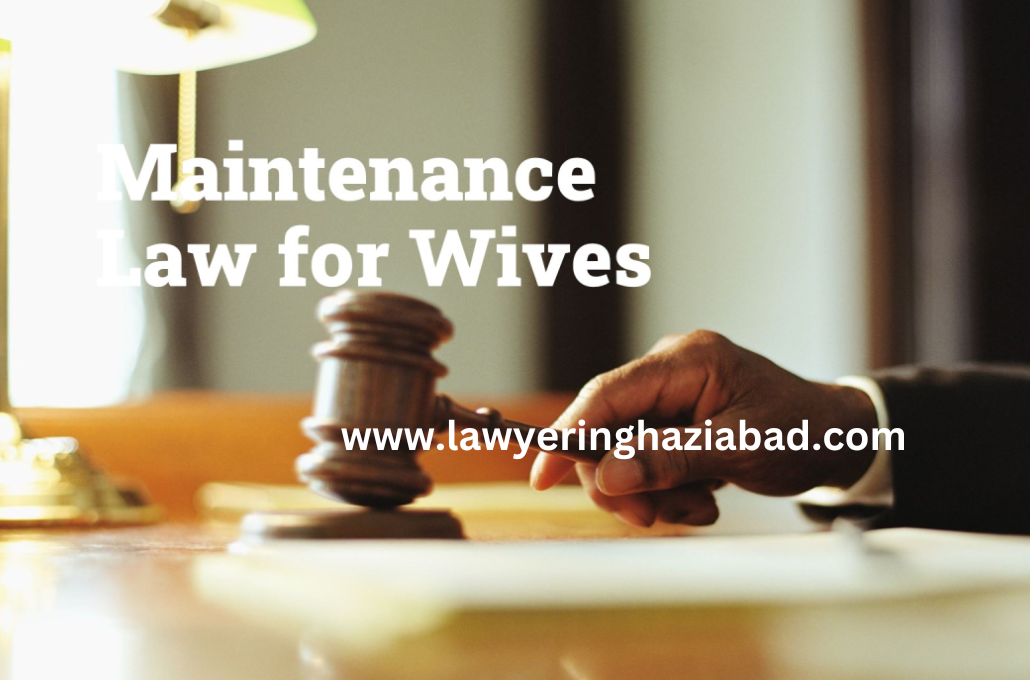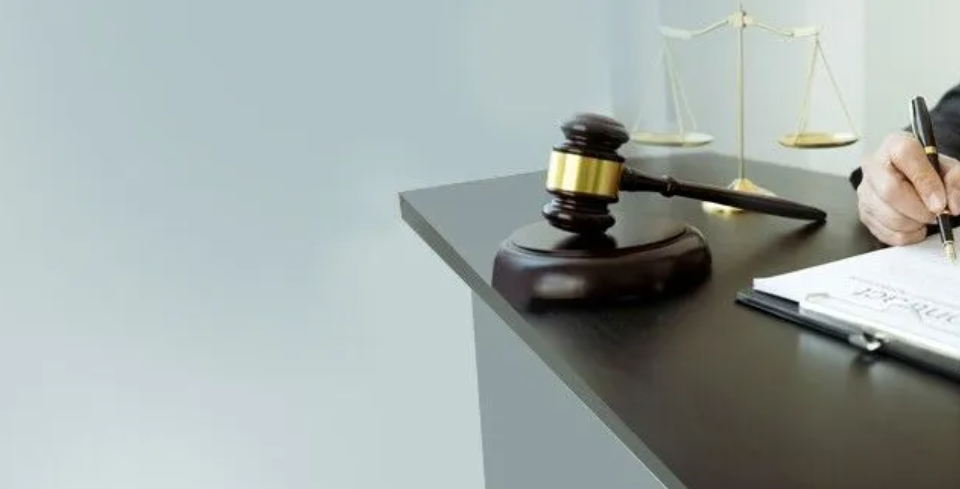
Lawyer in Ghaziabad is a leading law firm with its presence in India and abroad, operating out of offices in: Delhi, Noida and Ghaziabad. It is one of the best law firms in Delhi, Noida and Ghaziabad with an exceptional experience and reputation in the legal arena.
- Legal Consultation
- Transparent Communication
- Results-Oriented
Maintenance Cases Lawyer In Ghaziabad
Trusted Maintenance Lawyer in Ghaziabad
Trusted Maintenance Lawyer in Ghaziabad
Your Go-To Expert for Maintenance Legal Matters
A maintenance case is a legal process where an individual seeks financial support, often in cases of separation, divorce, or abandonment. It plays a crucial role in family law by ensuring that financially dependent individuals—such as wives, children, or elderly parents—can maintain a standard of living despite the breakdown of family relationships. Maintenance is based on the principle that no one should be left destitute due to circumstances like divorce, especially when one party has the financial means to provide support. In India, the right to maintenance is guaranteed by several laws, including Section 125 of the Criminal Procedure Code (CrPC), the Hindu Marriage Act, 1955, and the Protection of Women from Domestic Violence Act, 2005. These laws ensure that the person responsible for maintenance meets their obligations, allowing the dependent party to claim their entitled support. Maintenance cases help prevent financial hardship while awaiting justice. At Lawyer In Ghaziabad, we provide expert legal guidance throughout this process. Our team believes every case deserves individual attention, and we work to ensure clients receive the support they deserve. Our lawyers are compassionate, understanding the emotional and financial strain maintenance cases cause. We aim to make the legal journey as smooth and stress-free as possible
Types of Maintenance Cases?
In family law, maintenance cases vary significantly based on the legal provisions under which the claim is filed, with each type of case having its own set of requirements, processes, and outcomes. These cases can include spousal maintenance, child maintenance, interim or permanent maintenance, and maintenance under the Domestic Violence Act, among others. Spousal maintenance is generally intended to ensure that a financially dependent spouse receives support after separation or divorce, particularly when one party is unable to sustain themselves at the same standard of living. Child maintenance, on the other hand, is designed to ensure the well-being of children and provide for their financial needs, including education, health, and daily living expenses, until they reach adulthood or achieve financial independence. Interim maintenance is often awarded as temporary support during the divorce proceedings to maintain the status quo until the final settlement is reached, while permanent maintenance may be granted if one spouse is unable to support themselves after divorce due to factors such as age, illness, or lack of employment opportunities. Additionally, maintenance under the Domestic Violence Act can be sought by victims of domestic violence, ensuring they receive financial support and protection. Understanding the distinctions between these various types of maintenance cases is crucial for anyone seeking maintenance, as each case involves specific legal considerations, documentation, and procedural requirements, which may vary depending on the jurisdiction and individual circumstances. Therefore, seeking expert legal counsel is essential for navigating these cases and ensuring fair outcomes.
- Maintenance under Section 125 of CrPC:
- Maintenance under the Hindu Marriage Act:
- Maintenance under the Domestic Violence Act:
Section 125 of the CrPC is one of the most common legal provisions for maintenance. This section allows individuals (typically wives, children, or dependent parents) to claim financial support from the person legally obligated to maintain them. A maintenance case under this provision can be filed in cases of separation, divorce, or desertion. One of the key aspects of this section is that it does not require the parties to be married under any specific religious law. It ensures that the dependents of an individual can claim maintenance irrespective of their religion, making it a universal provision for all Indian citizens. The law under Section 125 also has a mechanism that ensures swift relief for the person seeking maintenance. In many cases, the court may issue interim maintenance, meaning that the person filing for maintenance can receive financial support while the case is still pending, ensuring they are not left financially vulnerable during the legal process. Moreover, the maintenance order under Section 125 is enforceable by law, and failure to comply with the order can result in legal penalties, including imprisonment for contempt of court. This ensures that the responsible party cannot evade their obligation to provide maintenance.
The Hindu Marriage Act, 1955 specifically addresses maintenance issues for individuals married under Hindu law. According to the Act, a wife has the right to claim maintenance from her husband not only during the marriage but also in cases of separation or divorce. Maintenance can be sought under Section 24 of the Hindu Marriage Act while the divorce proceedings are ongoing, ensuring that the wife is not financially deprived during the period of separation. The court considers several factors, including the wife’s needs, the husband’s financial capacity, and the standard of living during the marriage, when determining the maintenance amount. Additionally, once the divorce is finalized, the wife can claim permanent alimony or maintenance under Section 25 of the Hindu Marriage Act. This provision ensures that a woman who is unable to maintain herself after a divorce can receive financial support to ensure her welfare. The amount of maintenance is not fixed and is decided by the court based on the individual circumstances of both the parties. Factors like the wife’s age, health, income potential, and the husband’s ability to pay are crucial when determining the final amount of maintenance.
The Protection of Women from Domestic Violence Act, 2005 was enacted to provide protection and legal relief to women who suffer from domestic abuse. Under this law, a woman can claim maintenance, along with protection orders, residence orders, and other forms of legal redress, if she has been subjected to domestic violence. The Act recognizes that financial independence is a key component of a woman’s ability to escape abusive situations, and it provides for financial relief as a part of the overall protection package. The maintenance granted under this Act includes compensation for various expenses, such as medical costs, housing, and basic needs. Unlike maintenance cases under other laws, where the claim is mostly financial, maintenance under the Domestic Violence Act also includes a comprehensive approach that considers the emotional and physical distress caused by abuse. It aims to restore the dignity of the woman and provide her with the means to rebuild her life without having to rely on the abuser
Eligibility for Filing a Maintenance Case
In order to file a maintenance case, the individual seeking financial support must fulfill certain criteria. The general eligibility includes being financially dependent on another person, such as a spouse, child, or parent. While each law has its own specific eligibility rules, here are the most common individuals who are entitled to file for maintenance: a spouse who is unable to support themselves due to lack of income, health issues, or other factors; a child who is financially dependent on one or both parents until they reach adulthood or become self-sufficient; a parent who is unable to maintain themselves and relies on their children for financial support; and in some cases, elderly or disabled individuals who require assistance. The person seeking maintenance must demonstrate their need for financial support, which may include providing evidence of their financial condition, dependency status, and the inability of the other party to provide for them. In some instances, the court may also assess the financial capability of the individual from whom maintenance is being sought to ensure a fair and just ruling.
- Wives: A wife who is separated or divorced from her husband and is unable to support herself can file for maintenance. Even if the marriage was not formally dissolved, if the wife is deserted or living separately due to incompatibility, abuse, or other significant issues, she can still claim maintenance. This ensures that a wife is not left destitute after the breakdown of a marital relationship, especially if she has been financially dependent on her husband during the marriage. The law acknowledges the need for financial support to help a wife maintain her standard of living and to recover from the emotional and financial challenges associated with separation or divorce.
- Children: Minor children, or those with physical or mental disabilities, are entitled to maintenance from their parents. The law ensures that children receive financial support to meet their educational, medical, and other basic needs, providing them with a stable foundation for their well-being and growth. Even adult children who are dependent on their parents due to illness, disability, or other circumstances may be entitled to maintenance. This protection helps to ensure that children, regardless of age, are not deprived of the care and financial assistance they need to live a dignified life.
- Dependent Parents: In cases where elderly or infirm parents are unable to support themselves, they can seek maintenance from their children. This obligation is based on the concept of filial responsibility, which asserts that children have a legal and moral duty to care for their parents when they are unable to care for themselves. The law acknowledges that many elderly parents may not have the means to support themselves, especially if they are retired or facing health issues, and therefore ensures that their children provide for their upkeep. This provision helps protect elderly individuals from being abandoned or neglected in their old age.
These eligibility criteria ensure that vulnerable individuals, who may otherwise be left without financial support, have a legal recourse to secure maintenance and live with dignity. In the absence of such legal provisions, individuals who are financially dependent on others due to marriage, age, disability, or parent-child relationships could face severe hardship and poverty. Maintenance laws aim to fill this gap by recognizing the responsibility of individuals to care for their dependents, ensuring that no one is left destitute, particularly when they are unable to support themselves due to circumstances beyond their control. By establishing clear eligibility for maintenance, the law empowers individuals to seek the necessary financial assistance they need, regardless of their gender, age, or relationship status. For example, women, especially in cases of separation or divorce, are protected from the financial difficulties that often arise when a marriage ends, ensuring they can maintain a basic standard of living. Similarly, children are guaranteed financial support from their parents to ensure they receive the care they need during their formative years, including access to education and healthcare. The law also safeguards the rights of elderly parents, who may face financial insecurity in their later years, ensuring that they can live with the dignity they deserve. These criteria ultimately promote social justice by reinforcing the moral and legal obligation to care for those who are most vulnerable, allowing them to live a life free from financial distress and emotional hardship.

Factors Influencing Maintenance Amount
The amount of maintenance granted in a case depends on several factors, which the court evaluates on a case-by-case basis. These include:
- The financial capacity of the person required to pay maintenance. The court will look at the income, assets, and liabilities of the liable party to determine their ability to provide maintenance.
- The needs and lifestyle of the claimant. For instance, if the claimant was accustomed to a higher standard of living during the marriage, the maintenance amount may be set higher to ensure that they can maintain a similar lifestyle.
- The age, health, and condition of the claimant. If the claimant is elderly, ill, or unable to work, the court will factor in their specific needs and the inability to earn a livelihood.
- The number of dependents involved in the case. If the claimant has children or elderly parents to support, this will increase the maintenance amount, ensuring that all dependents are provided for.
- The conduct of both parties during and after the marriage. If one party has been particularly negligent or abusive, the court may consider this while determining the amount of maintenance.
By evaluating all these factors, the court aims to ensure that the maintenance granted is fair, reasonable, and sufficient to cover the claimant’s basic needs.
Legal Assistance in Maintenance Cases
Filing a maintenance case can be a complex process, requiring legal expertise to navigate through the intricacies of family law. Without the proper legal representation, it can be difficult to understand the various legal nuances and ensure that your rights are fully protected. This is why it is crucial to seek the help of a qualified family law lawyer who can guide you through the entire process, from filing the initial petition to securing the maintenance you are entitled to. At Lawyer In Ghaziabad, our experienced lawyers are committed to providing comprehensive legal support in maintenance cases. We assist in gathering the necessary documents, such as financial records, marriage certificates, and proof of separation, which are essential for filing a strong case. We ensure that the case is prepared thoroughly and that all the relevant details are presented effectively before the court. Our lawyers will also represent you in court, ensuring that your interests are protected and that you receive the best possible outcome.
How We Can Assist You
At Lawyer In Ghaziabad, we offer a range of services to ensure that your maintenance case is handled efficiently and effectively. From the initial consultation, where we assess your situation, to representing you in court hearings, we are with you at every step of the process. Our team will also assist in negotiating settlements, where possible, to ensure that you receive fair financial support without the need for prolonged litigation. In cases where interim maintenance is needed, we can help file for urgent relief, ensuring that you receive financial support while the case is pending. This interim relief helps prevent financial hardship during the legal proceedings, allowing the claimant to maintain their daily life while waiting for the final decision.
Steps Involved in Filing a Maintenance CaseThe process of filing a maintenance case involves several key steps:
- Consultation: Meet with our legal team to discuss your case and determine your eligibility for maintenance. We will provide advice on the next steps and explain your rights.
- Document Preparation: Gather and organize all necessary documents, such as income statements, marriage certificates, medical records, and proof of expenses, which are critical to the case.
- Filing the Petition: We will file the maintenance petition with the family court, presenting your claim for financial support.
- Court Hearings: We will represent you at each court hearing, presenting your case and advocating for your interests.
- Final Judgment: The court will issue a final decision on the maintenance amount. We will ensure that the decision is in your favor, based on the details of the case.
- Enforcement: If the responsible party fails to pay the maintenance, we will assist in enforcing the court order, taking legal action to ensure that you receive the support you are entitled to.
Why Choose Lawyer In Ghaziabad?
Choosing the right lawyer is crucial to the success of your maintenance case, as it directly impacts the outcome of your case. At Lawyer In Ghaziabad, we offer a combination of legal expertise, extensive experience, and genuine empathy to ensure that you receive the highest level of support. We understand that maintenance cases are not only legally complex but also deeply personal and emotionally charged, often involving sensitive family issues. Our team approaches each case with the utmost care, professionalism, and sensitivity, recognizing the significant emotional and financial challenges that clients face. We are dedicated to providing personalized attention, offering clear guidance, and helping you navigate through every step of the legal process. Whether you are seeking spousal maintenance, child support, or any other form of financial assistance, we are committed to protecting your rights and ensuring a fair outcome. We work tirelessly to advocate for your interests, negotiating with the opposing party and representing you in court, if necessary. With our experienced legal team by your side, you can be confident that your maintenance case will be handled efficiently, effectively, and with the care it deserves.
Contact Us Today
If you are seeking maintenance or need legal assistance with any family law matter, contact Lawyer In Ghaziabada today. Our team of experienced lawyers is ready to provide you with the legal support you need to secure your financial future. Whether you are going through a divorce, separation, or facing any form of financial dependency, we are here to guide you every step of the way. We understand that dealing with family law matters can be stressful, and the emotional toll it takes can be overwhelming. That’s why we prioritize your needs, ensuring that you have a clear understanding of your rights and the best legal options available. We will help you navigate through the complexities of maintenance cases, ensuring you receive the support you deserve. Our legal team is committed to working tirelessly to achieve the best possible outcome for you. From preparing your case to representing you in court, we are dedicated to protecting your interests and securing the financial support you need to maintain your dignity and quality of life. Reach out to us today, and let us help you navigate this challenging time with confidence and peace of mind. We are here to ensure that you are supported through every step of your legal journey.





